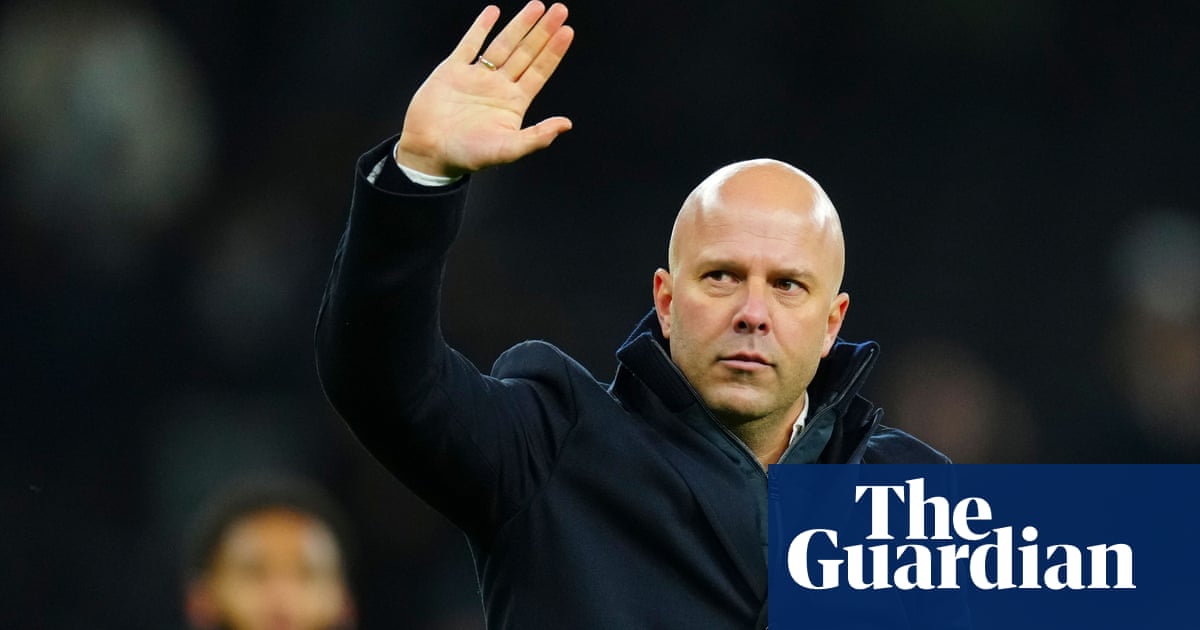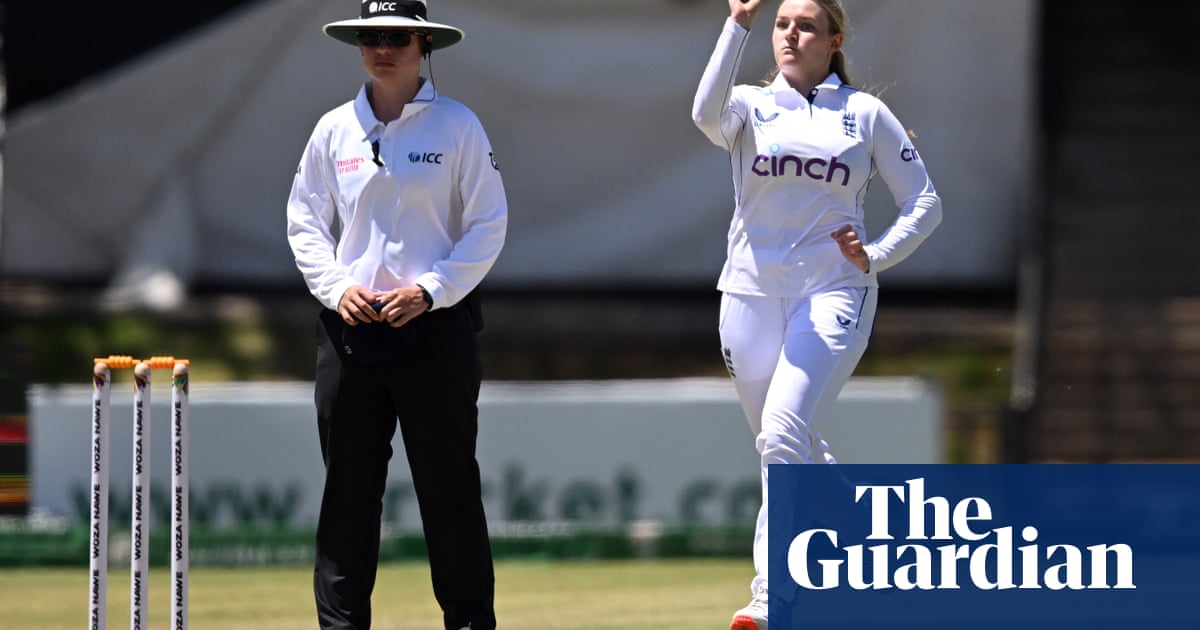It has often been said that the point of art is to ask the essential questions. Why does this thing exist? Why is this process happening? And is there any way of making it stop? In this context Paris Saint-Germain’s 3-0 defeat of Salzburg at the Red Bull Arena on Champions League match-day six was undeniably a work of art.
At the end of a fretful but still relentlessly soporific game, 90 minutes of Diazepam-ball dotted with moments of quality, PSG had upgraded their hopes of progressing to the next phase from dicey to quietly hopeful.
In the process they nudged closer to avoiding a dose of grand sporting irony. It was always likely one of Europe’s mega-clubs would fall foul of Uefa’s new format, designed to ensure the elite get a guaranteed broadcast income stream into the spring.
A wretched start in this competition meant Luis Enrique’s team arrived in Austria 25th in the hyper-table and needing, in all likelihood, to win two of their last three games to make the playoffs, with Manchester City in Paris and Stuttgart away still to come.
Luckily, in Salzburg they faced with opponents who aren’t just out of their depth at this level but carry the same sense of anti-energy, of being unavoidably ersatz in design and execution. PSG had too many high-class players not to win. Achraf Hakimi and the excellent Nuno Mendes were decisive from the flanks. It really could have been five or six by the end if anyone had felt strongly enough about it.
But it is also hard to imagine there have been many sporting occasions with the same air of strangeness-by-design as the first meeting of these two pop-up teams. Never mind a good advert for football. For long periods this was more like a bad advert for bad football. In-between it felt like a bad advert for everything. It was, in any case, definitely an advert. Project, meet project. Consumerism, meet despotism. Visit Red Bull. Drink Qatar. Liquefied natural gas gives you wings.
This is of course a continuum that includes every club at this level now. The whole show is advertising and power. But not quite to this extent, one of those moments where the mask doesn’t just slip, it never really existed in the first place. In the event it seemed fitting these two teams should produce a deathly game of football.
Early on simple passes were fizzed urgently out of play. PSG kept possession because nobody seemed to have considered anything else could happen. A ring-rusty Gonçalo Ramos produced an amazing miss, put in space two yards out by Hakimi but managing somehow to cut his shot past the post in a way that can only be described as expert, precise, elite, a footballer with a picture in his head of exactly where the goal isn’t.
This version of PSG is a strange, meandering thing. The old flash and swagger has been replaced by a teasing, tickling lateral drift, possession without penetration. The ball was shuttled neatly, intricate passing angles constructed, a vast edifice of possession stockpiled. It is a style that seems to speak to the general direction of the club. Vast amounts of money and PR flash are being expended here. What for?
PSG did take the lead on 28 minutes, Ramos sliding the ball in from eight inches out, having ended up there because Salzburg didn’t really know how to stop this happening. And Salzburg really are a terrible team, albeit in a way that also feels new and distinctive. This is a soft-drink vehicle that can’t even call itself by its real name in this competition because Uefa, of all people, is bothered by the over-promotion of a sponsor.
In practice the club acts as a kind of player exchange, Drink-Bro sports capitalism, an aggregator for youthful human talent. Oh look, it’s a 19-year-old Ghanaian investment vehicle. Here is a handsome and convincing Dane. The squad has 23 players in the 17-22 age group, eight of them outfield starters here. Is this really a football team? Or just some cool young guys in a TV advert hoping this turns out to be their big break?
Against PSG there was no pattern, chemistry or base level of knowhow. But there were plenty of flicks, drag-backs and sudden spasms of energy. This is a team made of matchsticks, icing and sprinkles. Look at me. Purchase me. I am a desirable talent unit. Maybe Salzburg should just start buying freestylers, sending them out to do keep-ups, to roll the ball along their shoulders, to beatbox and take selfies.
after newsletter promotion
Mendes and Désiré Doué added second-half goals to complete a straightforward win on the back of 70% possession. And perhaps these two teams can do this again next summer, when they will make up one sixth of Europe’s contribution to the Fifa Club World Cup.
It might seem strange that a team as poor as Salzburg have qualified, nominally on their Uefa ranking (currently: 45th), but really on a tangle of rules on quotas and the past performance of others. You wanted to spread the game. Well, here’s a highly marketable soft-drink construct from Austria. Happy now?
As for PSG they now seem moderately well placed to make the playoffs, although in a way that seems unlikely to change very much. The domestic form has been good. Luis Enrique has extended his contract to 2027 just as talk starts to swirl of – of all things – fissures in the most fissure-centred dressing room in football.
Nasser al-Khelaifi used to hang out with the players, even going so far as to injure a knee playing padel with Marco Verratti. He turned up next to David Beckham at Buckingham Palace last week. But the president is said to be more distant now, the project itself in a slight holding pattern.
The club remains a beautiful obscenity, oddly boisterous but still oddly empty, authors of a totally skewed domestic league, and still wondering how to exist at a level it was designed to dominate. Victory in Salzburg offers another chance to fulfil that receding destiny; or more likely to fail in a way that remains, for all the sense of wasted energy, oddly gripping.









